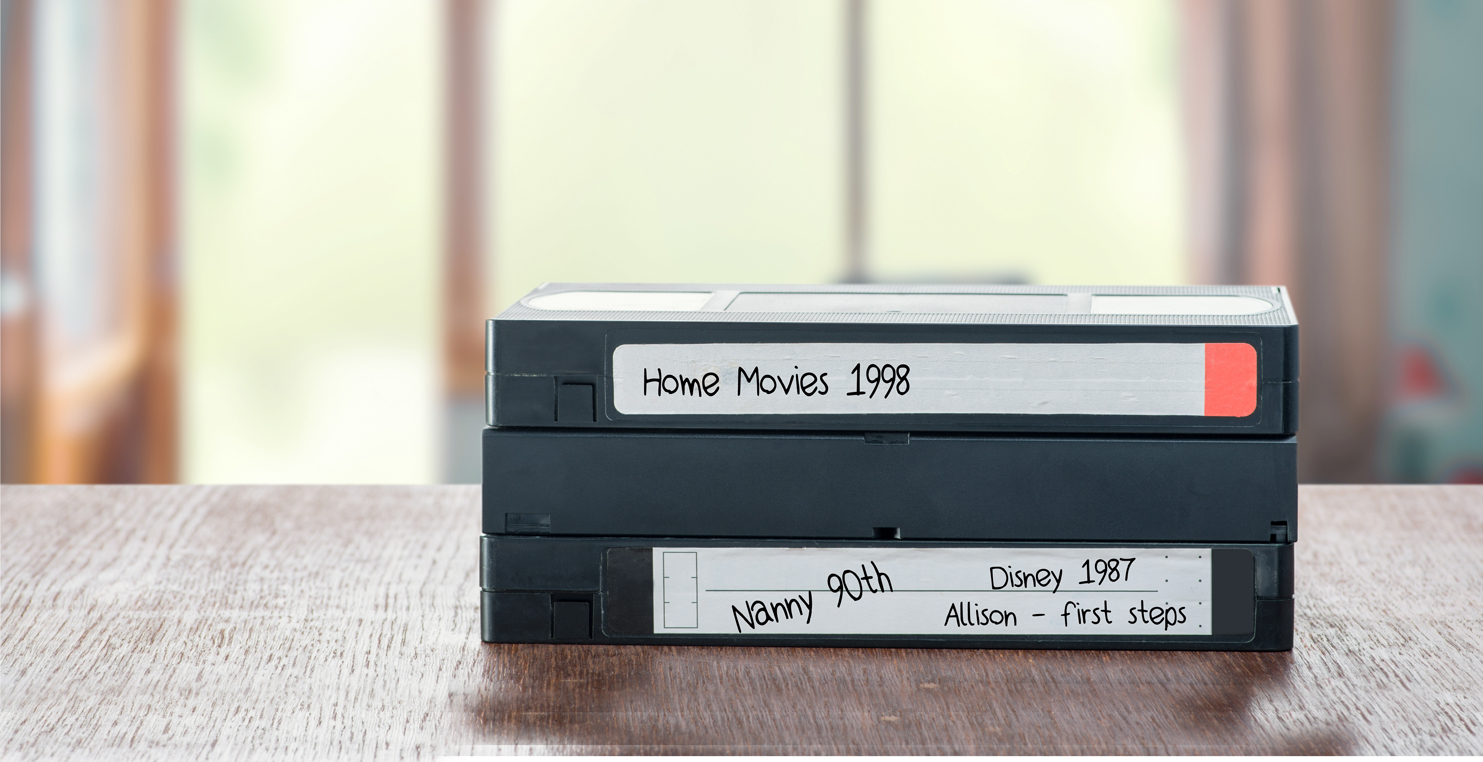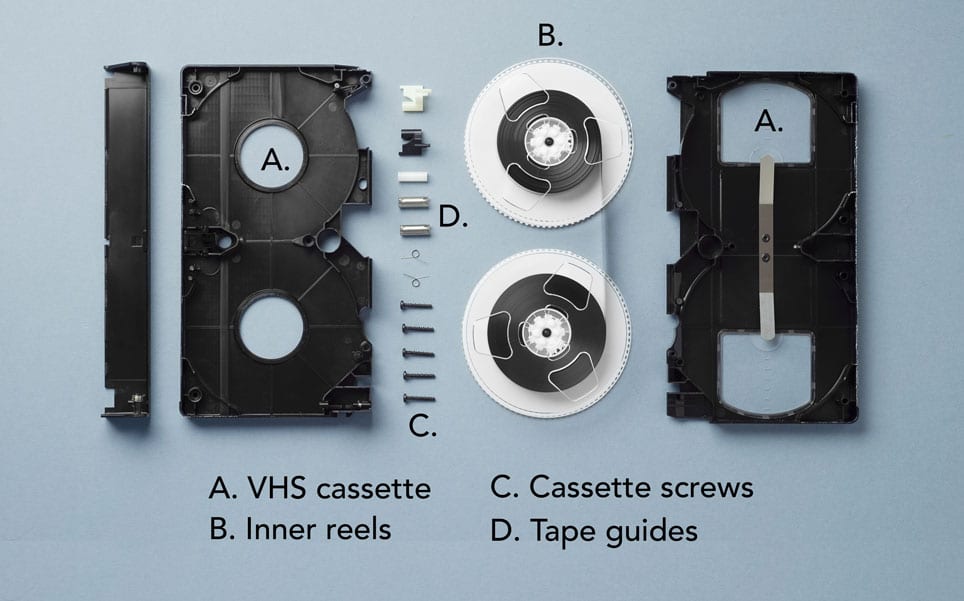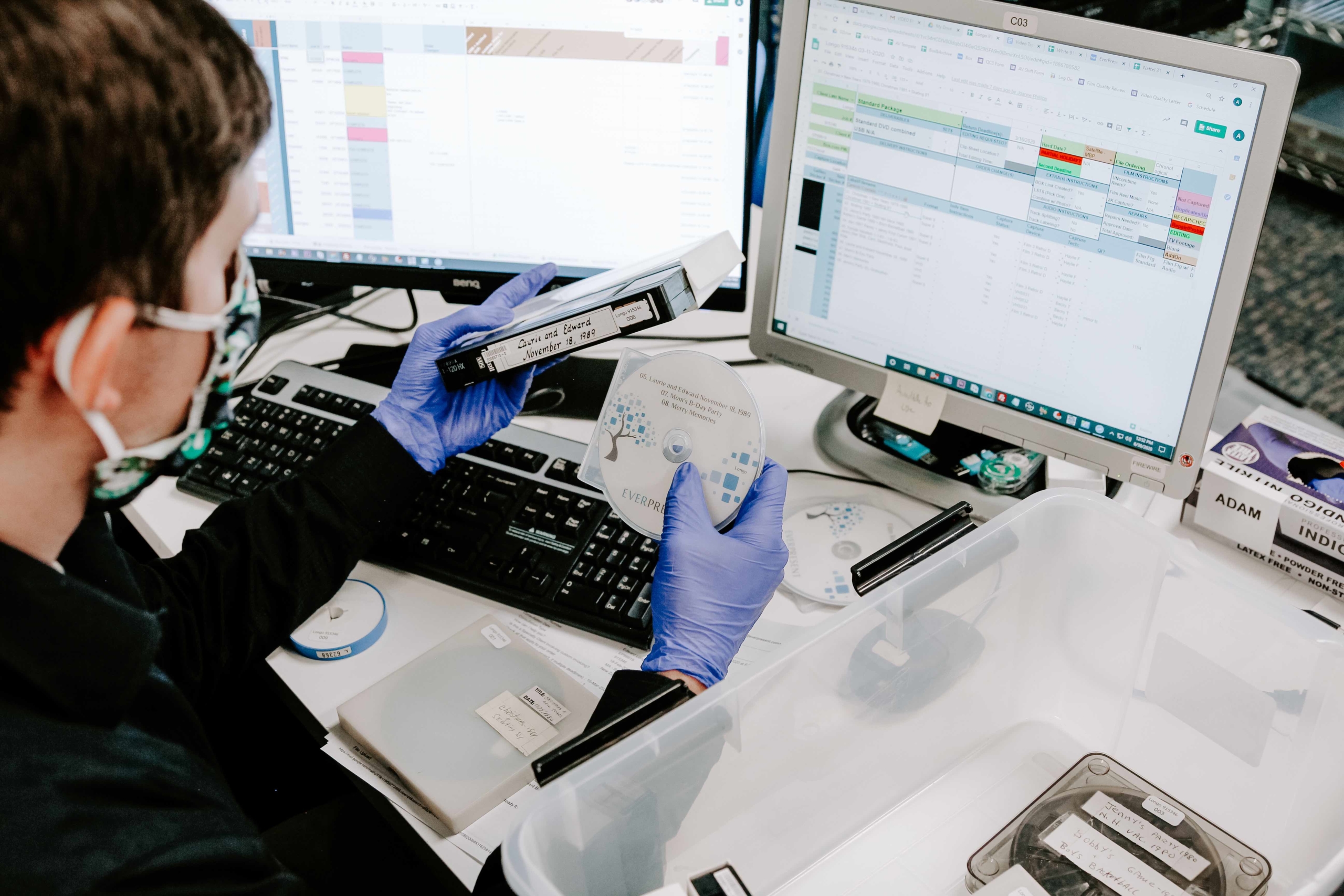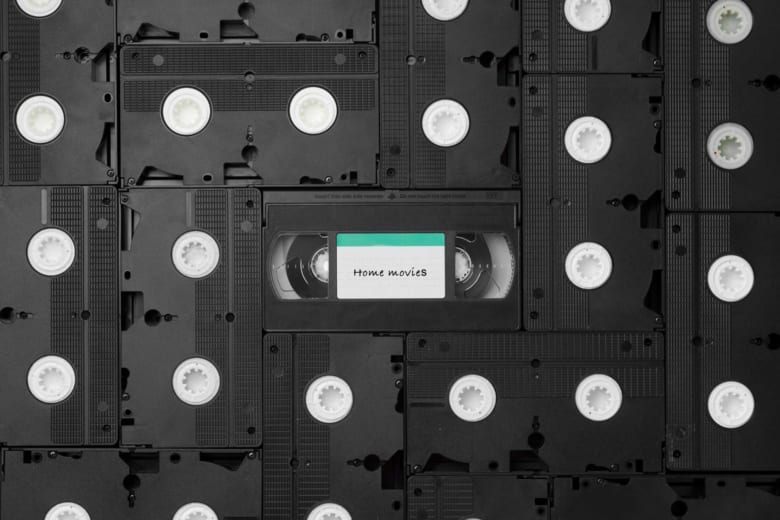If you’re clinging to old video cassettes because they hold cherished memories, bear in mind that magnetic memories tend to fade over time. That raises the question of “how long does a VHS tape last?”
VHS and other magnetic video cassettes are susceptible to damage because the components that allow them to play are transitory. However, understanding how does a VHS work, and where video cassettes are weak can shed light on a VHS tape lifespan and the best way to protect them.
Do VHS Tapes Go bad?
VHS tapes are composed of three layers: the binder, the substrate, and the backing. The tape’s composition varies depending on how they were constructed, but they are all made up of three layers: the binder, the substrate, and the backing. These layers were designed to assist the tape in withstanding the friction and stress of frequent playing, rewinding, and forwarding.
The binder layer provides the signal quality, which comes into direct touch with the playback machine’s heads. It includes magnetic particles that help the tape store information. They’re typically suspended in the binder with lubricant, which is supposed to flow out during playback (microscopically) and protect the binder layer. The substrate and backing layers provide dimensional stability and strength, with the backing layer also assisting in friction reduction.
How Long Can a VHS Tape Record?
The standard VHS time is typically two to three hours long. However, it is contingent on a number of factors.
The length of the cassette tape and the recording settings on your VCR. The VCR has three default settings: SP (Standard Play Mode), LP (Long Play Mode), and EP (Extended Play Mode).
If the tape is a T-120 and the VCR is set to SP mode, for example, it will record for two hours with the best visual quality. The LP mode will last 4 hours, while the EP mode will last 6 hours.

How Long Does a VHS Tape Last?
VHS tapes last 10 to 25 years. How long will VHS tape last varies and depends on the quality of the tape as well as proper storage. Tapes stored in a climate-controlled environment can last significantly longer than the ones not stored correctly.
If you still have a collection of videos from the 90s, some of the content will definitely have deteriorated due to the passage of time. While minor flaws may be salvageable, the sooner you transfer magnetic memory to digital, the more likely you can keep those treasured memories intact.
How Do VHS and Magnetic Tapes Degrade?
Remanence decay causes magnetic particles to lose their charge over time, resulting in color changes to weaker colors and a loss of overall detail.
The binder becomes more prone to wear and tear as the lubricant layer erodes, which directly impacts the magnetic particles and causes data loss.
Even in a somewhat humid environment, the binder’s polymers absorb water, resulting in a sticky, unusable disaster known as sticky-shed syndrome.
Rewinding and playback on a regular basis can stretch the backing and substrate, resulting in tracking inaccuracies and severely degraded playback quality.
Consecutive recording and copying might result in information and sync signal degradation over time.

Can You Clean VHS Tapes?
Mold, dust, and particles can accumulate, regardless of how well you’re storing VHS tapes. If you need to clean your old VHS tapes, you should utilize a mechanized tape cleaner. Finding a tape cleaner might be difficult, but you can try browsing online or at local second-hand stores. If you can’t find a tape cleaner, you can manually clean a tape by gently removing the film from it. A tape cleaner, on the other hand, is typically the safer alternative. To keep your tapes clean over time, store them in a secure location and handle them as little as possible.
Place the VHS tape in the machine. You should start the cleaning procedure by fast-forwarding your tape all the way to the end. To start your cleaner, press the button. You should be able to slide the VHS tape in with ease. Clean the cleaner by closing it and pressing the clean button. Allow the cleaner to rewind the tape while cleaning the film completely.
Tape cleaning instructions differ, so check your instruction booklet to make sure you’re using your cleaner appropriately.
You can attempt this procedure if your electronic tape cleaner didn’t entirely remove dirt or dust, but be warned: it’s dangerous. When physically cleaning tape, it is easy to harm it, so proceed with caution.
Before you begin, get together a pair of cotton gloves and tissues or a cotton cloth.
- If the tapes have been exposed to water or humidity, they must be properly dried out first.
- Wear a clean pair of cotton gloves.
- Pull out roughly 12 inches of tape by lifting the top side flap of the tape case where the tape is seen going from one reel to the next.
- Wipe the exposed tape gently with a cotton towel or tissue, but avoid using any liquid, since this can harm it.
- After cleaning the reels, spin them with your finger to reposition the tape.
- Using a cotton towel or tissue, remove another foot of tape from the reels.
Don’t forget about your VCR now that you’ve cleaned your VHS tapes! Dust and particles, like everything else, have most certainly made their way into your deck. Cleaning your VCR using VCR cleaning tape is a cheap and simple solution to keep your VCR from devouring your tapes!

How to Preserve VHS Tapes
Hopefully, we’ve helped answer how long does a VHS tape last, and you understand that converting your VHS cassettes to digital files is the safest approach to save your memories.
At EverPresent, we think that digitization should be simple and that you should only have to pay once. That’s why we’re happy to be the most popular choice among families for seamless VHS to digital services since we’re local, inexpensive, and convenient.
If you live in the Northeast region, we provide the convenience of drop-off at over 40 local businesses, service by mail, or we’ll even travel to your home to pick up your project. As a family-owned company, we approach every project as if it were our own. Contact us today to save your memories.

